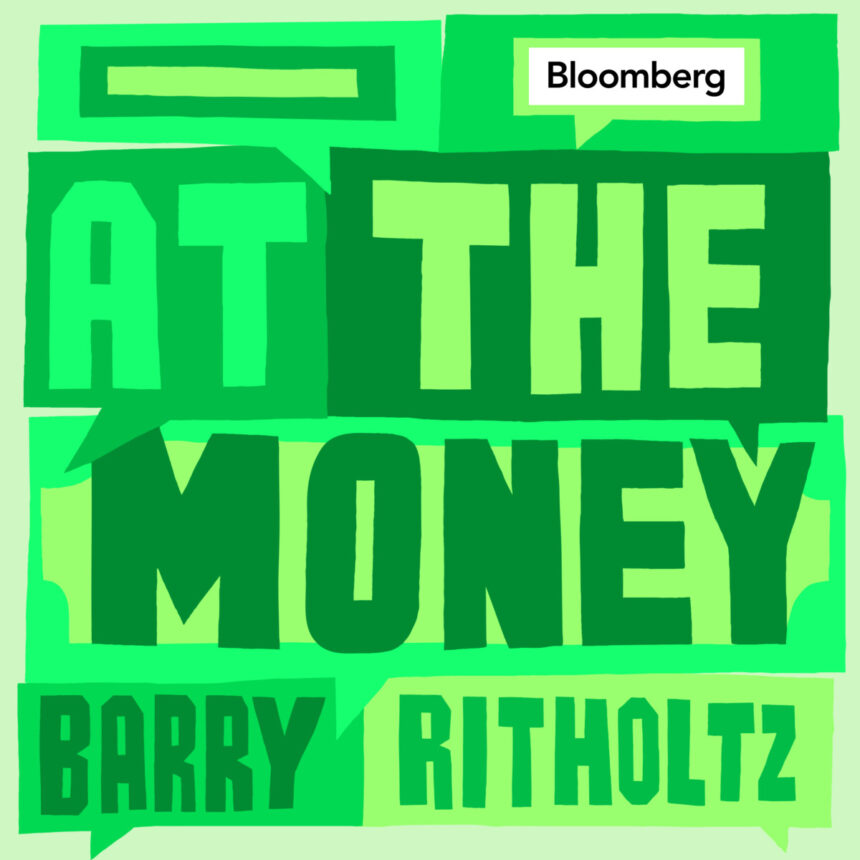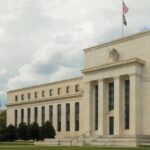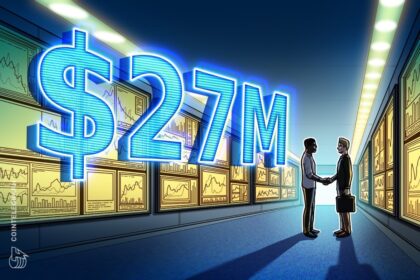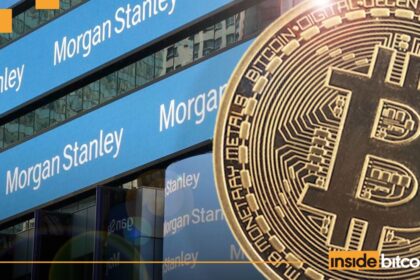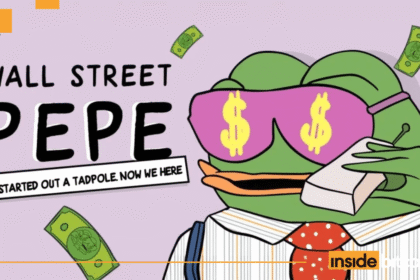At The Money: How Greed Became a Virtue. (September 24, 2025)
It’s a driving factor in our lives. But how often have you thought about those little green pieces of paper in your wallet? Is money real, or simply a collective delusion?
Full transcript below.
~~~
About this week’s guest:
Paul Vigna is a reporter for The Wall Street Journal and has been a journalist for more than 25 years, as a reporter, editor, and photographer. He currently covers the cryptocurrency sector, including bitcoin, other digital currencies, and blockchain-related technologies. He is the author of “The Almightier: How Money Became God, Greed Became Virtue, and Debt Became Sin.”
For more info, see:
~~~
Find all of the previous At the Money episodes here, and in the MiB feed on Apple Podcasts, YouTube, Spotify, and Bloomberg. And find the entire musical playlist of all the songs I have used on At the Money on Spotify
TRANSCRIPT:
“The point is, ladies and gentlemen, that greed, for lack of a better word, is good. Greed is right, greed works. Greed clarifies, cuts through and captures the essence of the evolutionary spirit. Greed in all of its forms. Greed for life, money, love, knowledge, has marked the upward surge of mankind…”
-Gordon Gekko, Wall Street, 1987
“ For the love of money is the root of all evil.”
Greed was long seen as a vice, as selfish as a waste of our time. It undercuts both our happiness and our life satisfaction. Yet today, the pursuit of money seems to be everywhere. It’s a driving factor in all of our lives. How did the love of money go from a vice to a virtue?
I’m Barry Ritholtz, and on today’s edition of At The Money, we are gonna discuss how greed became good. To help us unpack all of this and what it means for you, let’s bring in Paul Vigna of the Wall Street Journal. He’s published numerous books on money and cryptocurrencies. His latest book is “The Almightier: How Money Became God, Greed became Virtue and Debt Became a Sin.”
Paul, when did greed become good and how did this happen?
Paul Vigna: I think people think that greed became good. That idea sort of came about in the eighties and, and you have the Wall Street clip, Gordon Gecko, you know, greed, for lack of a better word, is good.
And the eighties were the greed decade. And, and a lot of people will say, you know, you had the election of Reagan. Uh, the conservatives, it all changed in the eighties and, and we’ve been living in that world, and I grew up in the eighties. You did too, Barry. I was a teenager in the eighties and I had absorbed a lot of those, those beliefs and those ideas also.
But what I’ve discovered is that you actually can trace that idea. Further back, much further back. I’m not talking about the, the robber barons in the gilded age in the 1890s where you can find it. I’m not talking about the Mississippi bubble in the 1700s where you can find it,
You can trace that idea back specifically almost to the year, at least, to the decade, to the 1420s. There was a Florentine writer named Poeo Bini, and he wrote a dialogue. And the dialogue contains among the many, many things in the dialogue, it contains this sentence, I’ll just say the sentence: “Avarice sometimes is beneficial.” It is almost word for word what Gecko says in Wall Street. Gecko says, greed, for lack of a word, better word is good. “Avarice sometimes is beneficial.” That idea was, was incubated in Florence in the 1420s.
Florence was a mercantile city. It was a republic, and there were a lot of merchants there. It was basically driven by commerce, and those merchants had this belief; they couldn’t talk about it, they couldn’t express it. They couldn’t really show it because the church’s stance was that usury is evil. It should be outlawed, greed is the root of all evil. You know, it was very, very dangerous to come out and say greed is good.
Barry Ritholtz: So let me ask you about something else. Historical figures who might have become forgotten? Who philosophized on this topic; Who were the economic thinkers who rebranded greed from a deadly sin to a driver of social benefit? You mentioned broccolini. Who else were, were key thinkers in this space?
Paul Vigna: It’s interesting ’cause the, the one dialogue that really states it the best is, is the one from Brachii.
So I spent a lot of time talking about that, but what’s interesting is that he ran in this circle of influential thinkers and doers that included, uh, a banker that most people probably know the name of, at least named Cosmo de Medici. And a man who would become Pope, who would become Pope Nicholas, the V, he was a bishop and, and he was a ni uh, Cosmo was actually, he was a, a, a supporter of this Bishop Nicholas.
The V becomes, Pope Cosmo becomes the most important banker in Europe and, and actually one of the most important politicians in Europe. And they take this idea and they run with it. Cosmo employs this in his bank, in his personal life. He makes a lot of money. He spends a lot of money. He shows people that you can be greedy, you can pursue wealth for yourself.
You can become very, very rich, and you can then become influential. He supports architects, he supports artists. He supports all kinds of public works projects. That becomes a very, and you’re talking about culture, that becomes a very influential cultural example to people in Europe.
Barry Ritholtz: Following the Medici family in Florence, which at the time was probably the wealthiest city state in Europe, uh, we eventually go forward to John Calvin and Protestantism, and Calvin holds that wealth is a sign of divine favor. This is the exact opposite of greed is a sin.
This is “Wealth, proves that the gods are smiling on you.”
Paul Vigna: I’ll go, I’ll go through a couple of hundred years of history very quickly here. So, uh, these Florentines start saying, greed is good, and they show it as an example, and it kind of takes off.
It takes off in the Catholic church, which starts employing it. The Catholic church starts raising a ton of money and spending money at the same time. They really buy this, I call it in the book, “the ethos of beneficial greed.” They start buying into it, and of course it all becomes excess, right?
A Medici becomes Pope, Pope Leo the 10th, and he is just, he’s, he’s horribly, terribly corrupt. He’s a really bad pope, and he spends a lot of money, and he is actually the basically the antagonist of Martin Luther, like the whole Protestant Reformation is a rebellion against the excesses of Leo the 10th and the Catholic Church.
But what’s interesting is that once the Protestant Reformation takes off the idea – what they really are against is the excesses – they’re not actually against the idea of money. And John Calvin comes along and John Calvin is very, very clear. And what he says is God controls everything, down to the last hair on your head is determined by God (and I don’t have a lot of hairs on my head left, you know, so there’s that)
God controls everything. God, everything that happens happens because God wants it to happen. If you have money, it is because God wanted you to have money so. Whatever job you have, you should do it to the best of your ability and you should go out there and make as much money as you want because that is what God wants for you.
He doesn’t want you to spend it the way the Catholics do. (And I’m Catholic, so if anyone’s upset about, you know, Catholic bashing, I’m just being historical here). He doesn’t want you to spend it the way those, you know, propagate Catholics do.
But God wants you to have it and then wants you to put it to good uses. You know, help the poor, help the indigent, you know, do, do good things with it, but if you have it, God wants you to have it. That idea becomes, at that point, becomes deeply, deeply embedded in our culture.
Barry Ritholtz: Let’s fast forward to people like Richard Baxter and even Ayn Rand. How does the thought that “greed is good” progress over the next few hundred years?
Paul Vigna: The next few hundred years, and again, I’m gonna do this very fast. (If people want the whole thing, they can, they can buy the book. Thank you very much in advance. Yes. I’m greedy too. I wanna sell my book.)
Calvin is influential. Another Protestant theologian named Richard Baxter Takes it a step further and he starts explaining how businesses operate and how, you know, the pursuit of wealth is employed as a tool of God’s will. And then who takes that even a step further, is Adam Smith, whose Smith’s whole idea really is that. The economic system we have, which had existed for a few hundred years by the time Smith came around.
The economic system we have is a moral system. This is how it works. This is what’s good about it by all these people out there doing these jobs that they’re supposed to be doing, the division of labor, this is all moving us towards a better relationship with God. That idea is, at the very least, it’s moralistic in Smith’s worldview, if not outright religious. He kind of secularizes it a little bit….
Let’s address that exactly, because Yeah, sure. I, I have to ask the question, what’s the relationship between the rise of capitalism and the redefinition of greed, uh, or at least motivated self-interest as a virtue?
Paul Vigna: I actually think – and I state this quite clearly in the book – I think this change in attitude toward greed is actually what creates capitalism. There’s a line in the book. I say, “Capitalism didn’t create greed; Greed created capitalism.”
What you see in Florence in the 1400s. Now I’m going backwards a little bit, but the start of it, that is the first time you see people employing capital consciously as a tool for themselves and for society.
It used to be just about the nobility and the kings and the rich, you know, accruing wealth, and it was all for them. Now you see this idea that, wait, wait, wait a second. We can actually, anybody commoners or nobility can pursue wealth, and that can be a tool to help us in our own lives and to help society.
That is the cornerstone of capitalism. “Greed is good,” explains capitalism as it actually operates. That is not how the textbooks tell you it operates. Actually went through the textbooks and I looked and like the word greed doesn’t appear in them at all.
Barry Ritholtz: Well, it’s motivated self-interest and it’s homo economists and all that stuff, so,
Paul Vigna: But it’s always kind of like sloughed off to the side, right?
Barry Ritholtz: You are making it a central focus.
Paul Vigna: So economic is about. Efficiency. It’s about, you know, system. No, it’s about greed. It’s actually about people using greed and you can see it winding its way through our culture. Adam Smith secularizes the idea and people seize upon it. And then you have this, this new nation that had just formed in the Americas and they rejected the king, they rejected the church. They needed something to ground their new country on. And what they came up with and James Madison, one of the founders, makes this most clear: Property rights, money, wealth. That is what the nation is actually founded on. This idea that that point becomes so deeply embedded in the culture of America, that that is what our, that that is the, that is the cornerstone of our history.
Barry Ritholtz: Let dive deeper into that. ’cause the book delves into the transformation of money, from a religious and communal tool to that exact secular object of faith. Are you saying that in large part the creation and economic success of the United States has been one of the key drivers of the belief that motivated self-interest, to use a less polarizing term and greed, economic textbook term, that what led us to a couple of quotes from your book. Banks are churches of money and the other quote that stood out, money isn’t like a religion, money is a religion.
Has money secularized greed or has money just kind of moved into religion’s? Sphere and said, Hey, we want part of this faith-based idea also?
Paul Vigna: I think it’s done both really. This is really the argument of the book is that it has replaced religion as the incentive system around which a society revolves. In other words, I said, I said earlier, 5,000 years ago, society revolved around the temple and it revolved the, around the idea of pleasing the gods.
That belief system faded. You can’t, in the modern world, have that belief. (I know there are plenty of people out there that believe in religion and I’m not trying to to, you know, attack their belief systems). But you can’t have a modern society built around that – at least the United States is a modern society that is not built around that – that can’t be the foundation.
It in fact is not the foundation and the history of Europe shows this over time, the authority of Kings, which came from the church. Was was whittled away and whittled away and through wars and civil wars and, and you know, it all faded. Religion was replaced by this other belief system and that other belief system is centered around money and the pursuit of wealth.
Barry Ritholtz: So to wrap up, how did greed become a virtue? Well-motivated self-interest has allowed us to lift billions of people out of poverty. Capitalism has shifted the dominant thesis of just living in the world from one of scarcity to one of abundance. And we’ve managed to take what was once perceived as a vice and turned it into a virtue by building an entire economic system around rewarding success, rewarding the appropriate allocation of resources by companies, by governments, and by people.
I’m Barry Ritholtz. You are listening to Bloomberg’s at the Money.
~~~
Find our entire music playlist for At the Money on Spotify.




